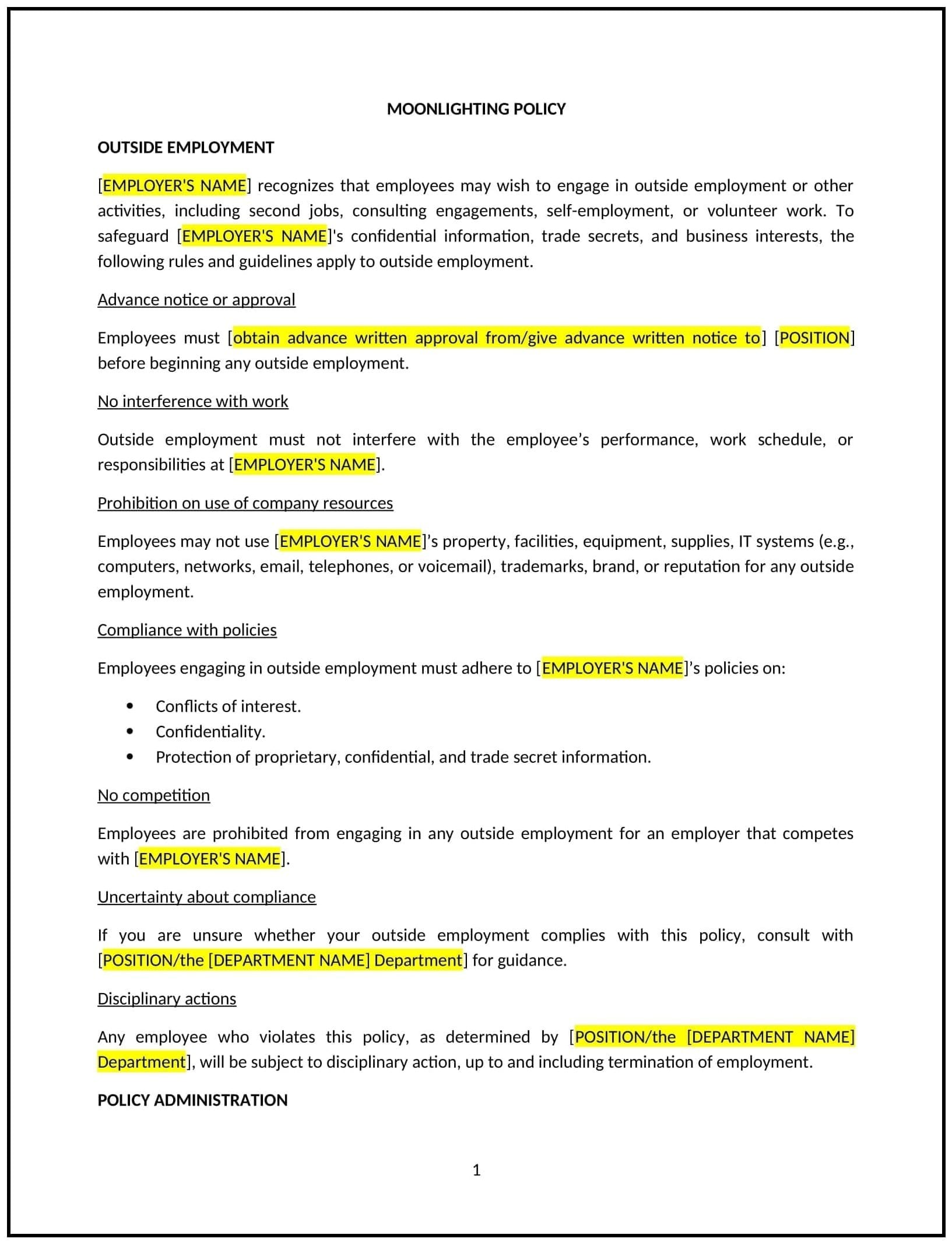Got contracts to review? While you're here for policies, let Cobrief make contract review effortless—start your free review now.

Customize this template for free
Moonlighting policy (Oregon)
This moonlighting policy is designed to help Oregon businesses manage employees who work additional jobs outside their primary employment. It outlines guidelines for disclosure, conflicts of interest, and performance expectations.
By implementing this policy, businesses can protect their interests, maintain productivity, and ensure employees’ outside work does not interfere with their primary job.
How to use this moonlighting policy (Oregon)
- Define moonlighting: Clarify what constitutes moonlighting, such as part-time work or freelance gigs.
- Require disclosure: Specify that employees must disclose any outside employment to their supervisor.
- Address conflicts of interest: Prohibit outside work that conflicts with the business’s interests or competes with its operations.
- Set performance expectations: Ensure employees’ outside work does not affect their performance or attendance.
- Train managers: Educate supervisors on handling moonlighting disclosures and addressing potential issues.
- Review and update: Assess the policy annually to ensure it aligns with evolving business needs and employee expectations.
Benefits of using this moonlighting policy (Oregon)
This policy provides several advantages for Oregon businesses:
- Protects business interests: Reduces the risk of conflicts of interest or competition from outside work.
- Maintains productivity: Ensures employees’ outside work does not interfere with their primary job responsibilities.
- Enhances transparency: Encourages employees to disclose outside employment openly.
- Reduces legal risks: Minimizes the potential for disputes related to conflicts of interest or performance issues.
- Supports accountability: Clearly outlines employee responsibilities regarding outside work.
Tips for using this moonlighting policy (Oregon)
- Communicate clearly: Share the policy with employees and include it in the employee handbook.
- Provide training: Educate managers on handling moonlighting disclosures and addressing potential issues.
- Monitor compliance: Regularly review employee disclosures and performance to ensure adherence to the policy.
- Address issues promptly: Take corrective action if employees violate the policy or their outside work affects their primary job.
- Update regularly: Revise the policy as needed to reflect changes in business needs or employee expectations.